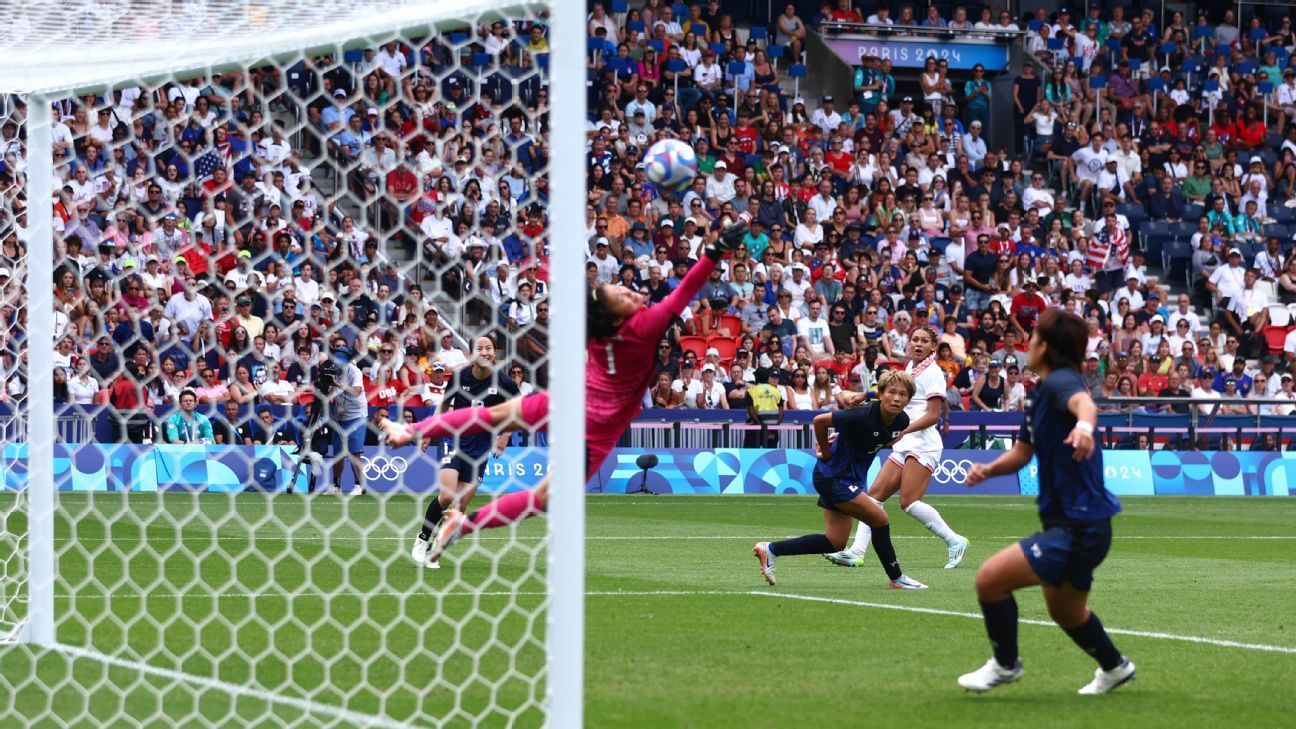Despite being a huge underdog, Japan gave it their all and for much of Saturday's Olympic women's soccer quarterfinal against the United States looked like they had every chance of pulling off a major upset.
They stifled opponents who have so far been the dominant force in the tournament, and even created a handful of decent chances that could have put them in the lead had they not been denied.
After taking the match into extra time, it seemed that… Nadeshiko could hold on to force a penalty shootout, which was the same way they achieved their most famous victory over the United States women's team in the 2011 FIFA Women's World Cup final.
In such a tight and tense match, it seemed like it would always take a moment of inspiration or a costly mistake to decide the outcome before the dreaded penalty shoot-out.
As the first period of extra time drew to a close, it proved to be the former as Trinity Rodman found space on the right, cutting expertly towards Hikaru Kitagawa before curling a sublime finish from a testing angle into the top corner for what proved to be the decisive moment in a narrow 1-0 victory.
When the final whistle blew some 15 minutes later, it was easy to assume it was sheer exhaustion that caused the Japanese players to collapse to the ground, and it certainly would have been a contributing factor.
But there is no doubt that it was also out of desperation.
For most of the marathon 120 minutes that had just passed, Japan had largely stifled a U.S. team that boasted a tournament-high nine goals in the group stage.
There was no sign of the fluid, expansive football the United States displayed in its previous three outings.
While some of that can be attributed to the USWNT perhaps being a bit underperforming, the Japanese also deserve credit for sticking to a system that denied the opposition time and space.
The five defenders, led superbly by captain Saki Kumagai, were always in sync and almost impossible to break through, while the midfield four provided another extra wall to breach.
So that it is not presumed that it was a total defense against NadeshikoThey looked to attack when opportunities arose and even created the better chances in the first half, only to be let down by some poor finishing.
Still, goalkeeper Ayaka Yamashita had little to do beyond the occasional routine save or interception off her line, only to have to clear the ball out of the net in the 107th minute after Rodman's superb effort.
The dismal scenes inside Japan's camp after the final whistle mirrored those of last year, when they were eliminated in the quarter-finals of the Women's World Cup after a similar narrow defeat to Sweden, in which they had numerous chances to have sealed victory.
Some looked to the sky in disbelief, lamenting the missed opportunity to have achieved a great result. Just as a year ago, young Maika Hamano, who had been a shining star throughout the tournament, was virtually heartbroken, although the efforts of her former Chelsea coach and current U.S. women's national team boss Emma Hayes produced a touching moment of grace and sportsmanship.
For Japanese football, which has made no secret of its burning desire to win an Olympic football medal, the disappointment NadeshikoThe team's defeat was not only due to the fact that this dream would not end until at least four years from now, as the men's team was also eliminated on Friday after losing to Spain.
It would also have been because – as happened last year when they were looking to repeat their success at the 2011 Women's World Cup – they knew they had given themselves a real chance of doing so.
It's not much consolation, but when the dust settles, Japan will at least be able to take solace in the fact that it took the best team in the tournament to knock them out.
And yet, only through a single magical moment.












